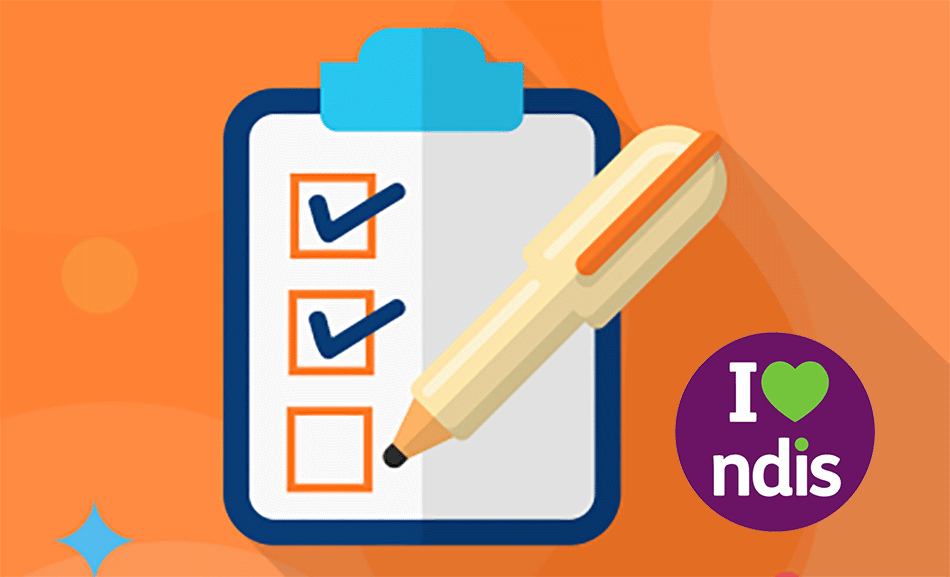
It feels like Katy Perry dedicated this song to the NDIS!
NDIS Support Lists - What's in and what's out?
In October 2024, the NDIS made a big announcement about the supports it will and will not fund.
Many people are still confused (or overwhelmed and worried) and scared, so we wanted to give you a quick summary of what it means for you.
Top 8 things you need to know when using the NDIS Support Lists
1. Purpose
The purpose of the NDIS Support Lists is to provide some clarification and to stop people from spending on items that SHOULD NOT be funded by the NDIS.
The list of allowable NDIS supports is not exhaustive, meaning it does not exclude items that are not specifically listed.
The purpose of the list is to clarify the TYPES OF SUPPORTS that fall under the OVERARCHING DESCRIPTION.
It is important for Participants to know that for something to be considered an NDIS support, it must:
- fit WITHIN the overarching description provided in schedule 1 (however, it does not have to be specifically listed) and
- must not be included in the non-allowable NDIS supports list.
2. Funding
The NDIS will typically fund a support if it meets ALL of the following criteria:
- it is for your impairments that meet the disability or early intervention requirements, or both
- it will help with your individual goals and aspirations
- it will help your social and/or economic participation
- it is value for money, which means that:
- the cost of the support is similar to or cheaper than alternative options that can provide you with the same outcome and/or
- purchasing the support is likely to reduce the costs of funding for other supports in the long term.
- it is effective and beneficial for you
- it helps to maintain your informal supports it is an NDIS support.
3. Support Lists
The NDIS released two NDIS Supports Lists showing what you can use your NDIS funding on:
What Supports are allowed NDIS supports?
NDIS supports refer to services, items, and equipment that can be funded by the NDIS.
These aim to help participants live independently, participate in community life, and improve their wellbeing.
They are grouped into 37 categories.
The list of allowable NDIS supports does not exclude items that are not specifically listed.
The purpose of the list is to clarify the types of supports included in the general description.
What is NOT an NDIS support?
There are things the NDIS can’t fund or provide. They can’t fund services, items and equipment that are not NDIS supports. You also can’t spend your funding on things that aren’t NDIS supports.
- Here is a list of things you CANNOT spend your NDIS funding on
- Here is an easy read version of the list
But...in some specific circumstances, the NDIS CAN fund supports that are not NDIS supports. They call these Replacement Supports.
4. Replacement Supports
The NDIS released a Replacement Support List - this is a list of substitutions you can use if what you want to spent your funding on is NOT on the NDIS approved list.
- You must submit this request in writing to the NDIS: How to apply.
- Here is a detailed resource about the Replacement List and How to Apply (there are lots of rules)
- Here is the Replacement List
- Here is an easy read version of the Replacement List
5. Incorrect Spending
What happens if I spend my funds on items that are NOT NDIS Supports?
The new NDIS laws say that a participant or nominee can receive a debt if they spend NDIS funds:
- on a support that is not an “NDIS Support” for the person; or
- not spent “in accordance with” the person’s plan
The NDIS will not raise debts for disallowed supports under $1,500 within a 12-month transition period.
This means that if a participant mistakenly uses NDIS funding for a support that is not allowed and the cost is under $1,500, the NDIA will not seek repayment.
Participants will receive at least two warnings before any action is taken for these smaller purchases.
The new laws also allows the NDIA to:
- change someone’s plan management style to Agency- or Plan-Managed (against their preference); and
- reduce a person’s funding period. This is how often funding is released from a plan. For example, for a person who could previously access 12 months funding at once, the NDIA could change it to 6 months at a time.
The NDIA’s decision to vary a plan management style or funding period is reviewable.
6. Claims
Providers will need to make sure they are billing you for Approved NDIS Supports or you won't be able to pay their bills. More for Providers here.
7. Plan Managers
Plan Managers should help Participants by reviewing the type of services you are currently claiming and letting you know if any of the items are on the 'OUT" list. If your Plan Manager is not helping you, talk to the team at Plan Hero Plan Management.
8. Transition Period
There is a transitional rule allowing participants to continue to access supports that are not NDIS supports for the duration of their existing plan if:
- They were specifically identified as reasonable and necessary before 3 October 2024
- The Administrative Appeals Tribunal has decided that the support should be funded as a reasonable and necessary support.
NOTE: This rule does not apply to sexual services, alcohol or drugs. These supports are specified in the primary Act as non-NDIS supports.
More Information
- Read our Full Resource here: What's on the NDIS List of Approved supports?
- Access the NDIS FAQ page: NDIS FAQ on recent legislation
NDIS THERAPY FINDER - FREE SERVICE
LET US FIND YOU A SKILLED SUPPORT WORKER

